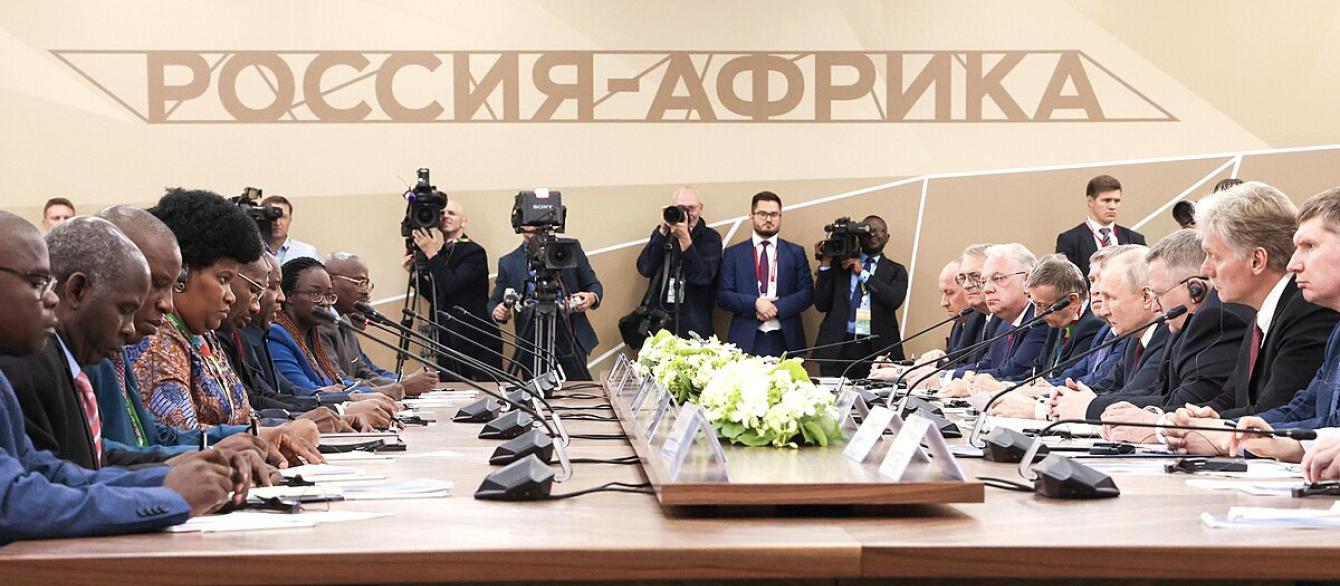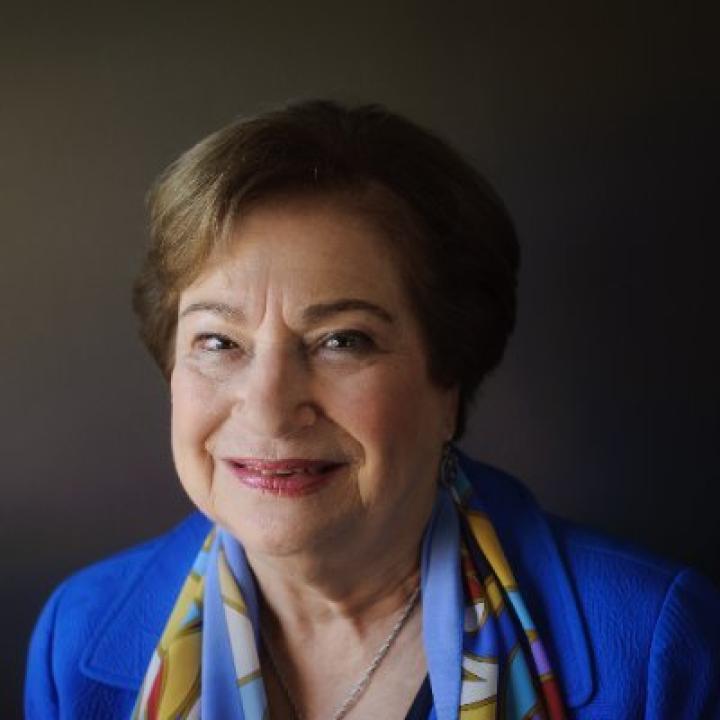This is an abridged version of an article originally published by Russia Matters.
As Russia begins its one-year presidency of the newly expanded BRICS bloc, great power competition will intensify in the Global South — where the Russia-Ukraine and Israel-Hamas wars have enabled the Kremlin to solidify and increase its influence. Russia now calls the developing countries of the southern hemisphere the “World Majority,” deemphasizing the economic definition of “Global South” and stressing instead political aspects — a community of non-Western countries that have no binding relationships with the United States and the organizations it patronizes.
While the U.S. and its allies struggled to persuade these countries to support Ukraine and reject the Kremlin’s narrative about the origins and course of the current war, Russia has largely succeeded in convincing them that the West is to blame for the conflicts in Ukraine and the Middle East alike. Foreign Minister Sergei Lavrov, in a December interview with leading Russian TV propagandist Dmitri Kiselev, praised the “World Majority” countries “who have not publicly declared Russia … an enemy.” They “are ready to work with us honestly, mutually beneficially, and mutually respectfully,” he declared, in economy, politics, and security. The West, Russia’s top diplomat proclaimed, does not respect these countries’ interests, while Moscow’s ties with them would grow stronger in 2024.
Lavrov specifically highlighted Russia’s BRICS presidency, which began Jan. 1. The bloc has now expanded from Brazil, Russia, India, China, and South Africa to also include Egypt, the United Arab Emirates, Ethiopia, and Iran, bringing the group’s share of world GDP and population to 34% and 45%, respectively.
Why has Russia succeeded in strengthening its standing with many countries in the Global South? Moscow starts out with a major advantage — deep skepticism among these countries about the West, especially the United States. Many Global South states see little difference between what Russia is doing in Ukraine and what the United States did in Vietnam, Iraq, or Afghanistan. Russia also taps into resentments about what is seen as the West’s neo-colonial condescension and its shifting attention away from urgent challenges in poorer countries. Moreover, Russia repeatedly invokes Soviet support for anti-colonial liberation movements to prove its bona fides as the leading anti-colonial power. Votes in the United Nations General Assembly tend to reflect these sentiments.
Although Western countries have much more to offer the Global South economically, Moscow does retain levers of economic influence. Energy remains the most important, with India becoming the second-largest purchaser of Russian oil after China. Nuclear energy exports, which are not sanctioned, are also growing. Russian fertilizer and grain exports are significant, with Moscow recently shipping free grain to six African countries — no doubt as reputational damage control after its refusal to renew earlier Black Sea grain deals, a blow to African economies.
Arms sales have also played a role in Russia’s competition with the United States in parts of the Global South, though Moscow’s market share has been shrinking for years.
One of the most important reasons Russia has held its own, and in some cases gained ground, with the Global South has to do with the changing international environment. The Russia-Ukraine war has opened up new opportunities for these countries to assert more agency on the global stage but also raised new concerns about broader geopolitical competition and a destabilizing power vacuum should Russia be defeated.
China has endorsed Russia’s narrative that the West caused the war with Ukraine and that Russia has the right to “indivisible security,” but Beijing and Moscow compete in parts of the Global South. This competition has facilitated Russia’s return to Africa in the past few years, in part because of African countries’ concerns about countering China’s dominant position there.
Putin’s decision to back Hamas in its war with Israel has also boosted Russia’s clout in the Global South, most of which has focused on condemning the Israeli bombing of Gaza as opposed to Hamas’s murder of Israeli civilians. Since Washington is identified as a strong ally of Israel, events in the Middle East make it less likely that the U.S. and its European partners can sway much of the Global South to their side.
In 2024, the U.S. and its allies will have to redouble efforts to engage politically and economically with countries in the Global South and to improve their public diplomacy to counter Russian narratives. Again, U.S. policies in the Middle East could make this outreach more difficult.
A recent report on Russian policy toward the "World Majority” — prepared for President Vladimir Putin by authors Sergei Karaganov, Dmitri Trenin, and Alexander Kramarenko — notes the importance of the Global South countries as “natural associates” for boosting Russia’s standing in the world. In Moscow’s standoff with the West over Ukraine, the authors find it “advisable to prepare the ruling circles and societies of the World Majority countries for a possible conflict escalation,” perhaps including “the nuclear factor,” in order to create a powerful tool “in containing the West and breaking its will to engage in aggressive behavior.”






